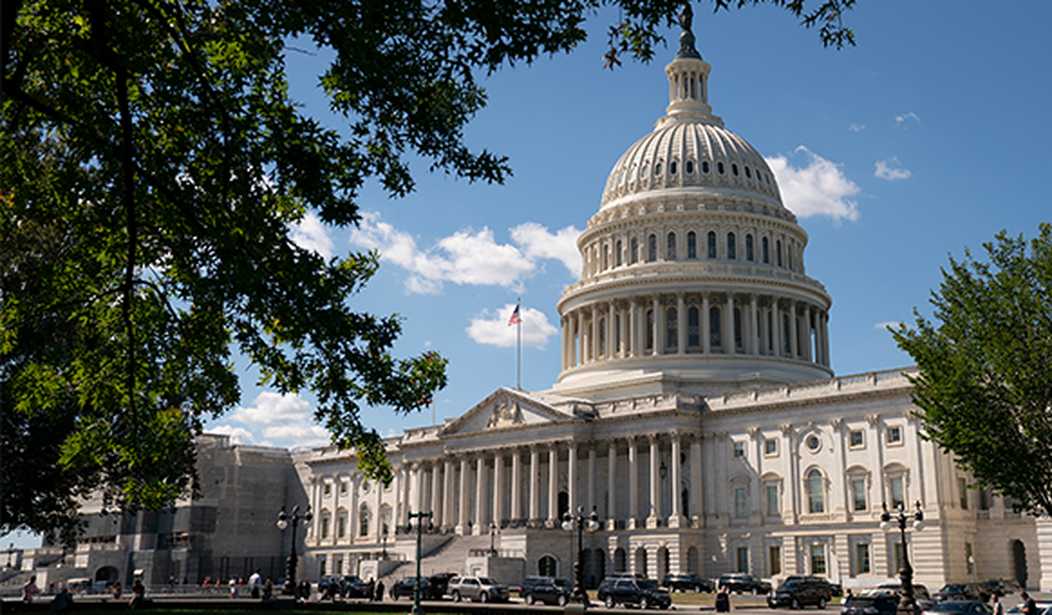It hardly seems noteworthy anymore that Congress is proposing trillions of dollars in spending. After a parade of trillion-dollar spending bills over roughly the last year, congressional leaders are rolling out a budget that will pave the way for another $3.5 trillion in spending. The budget accounts for everything from infrastructure, to social welfare, Medicare expansion, and immigration. A package this broad would be irresponsible under any circumstance, but given the recent report by the Congressional Budget Office (CBO), it is especially problematic.
On July 9, the CBO released its monthly budget review for June. The numbers did not paint a pretty picture for the fiscal state of the nation. According to the report, “Outlays in the first nine months of fiscal year 2021 were almost $2 trillion more than spending during the same period two years earlier.” The CBO attributes most of the sharp jump to pandemic-related spending.
As a result, the CBO projects that if nothing changes about the nation’s spending habits, the budget deficit for the year will reach a staggering $3 trillion. While this number is a mere $130 billion less than last year’s deficit, it is triple the deficit in pre-pandemic in 2019. This report is not taking into account the massive spending packages that seem to be just around the corner as a result of the $3.5 trillion budget deal. Needless to say, the numbers are likely to get worse.
Though Congress may not seem to care anymore about these astronomic numbers, they are historic. The expected $3 trillion deficit represents 13.4 percent of GDP. Both numbers are the second highest of their kind since 1945 – surpassed only by the deficit and deficit-to-GDP ratio of last year. Despite these alarming numbers brought forth by the CBO, very few lawmakers are demonstrating any willingness to cut back or to change existing habits.
While the deficit may end up being slightly lower than last year – a projection thrown into doubt because of the recent budget deal – this is not because of any renewed sense of fiscal responsibility. It is because the economy was able to recover after the devastation of last year. Tax receipts rose by a whopping 35 percent from last year. Yet, our leaders still managed to accumulate another $3 trillion in debt (at least).
Recommended
This is reflective of the painful mixed messaging going out on this reckless spending. As lawmakers tout the necessity of all this spending to assuage the pain of the pandemic, they simultaneously talk about the miraculous recovery the economy’s undergone. We are – for all intents and purposes – on the other side of this pandemic. It is time our elected leaders start governing like it.
Given the prevalence of massive expenditures, it may begin to seem like Congress is playing with monopoly money at this point, and act as if none of these numbers actually matter. This could not be further from the truth. They do matter very much. In fact, if current trends are not reversed, they will matter in a way that is painful for millions of Americans across the country. They may not feel it quite yet, but the debt looms ever larger and the bill will eventually come due for everyone.
The national debt has, in recent years, eclipsed 100 percent of GDP. This means, in essence, we have to borrow money to pay interest on the money we have already borrowed. This will create an ever-quickening spiral downward. As of now, the U.S. pays roughly $300 billion per year in interest on the debt. At current projections, that number will reach a full trillion by the end of the decade.
This will only end one of two ways for the country. The first is that the ever-increasing expenditures on debt financing will crowd out spending in other areas and force the nation into strict, immediate austerity measures that many are wholly unprepared to deal with. The other way is if the government decides to ignore the problem and ameliorate it by printing more money to assist with financing. At that point, the nation will experience crippling inflation that will only get worse until spending is reined in.
Elected leaders are kicking the can down the road, many probably hoping they will be long out of office by the time the consequences come down. However, it is time to lead and make cut backs now before even sharper, more painful cuts have to be made years down the line.
This CBO report should light that fire and signal to Congress that this $3.5 trillion budget deal is a recipe for failure.

























Join the conversation as a VIP Member